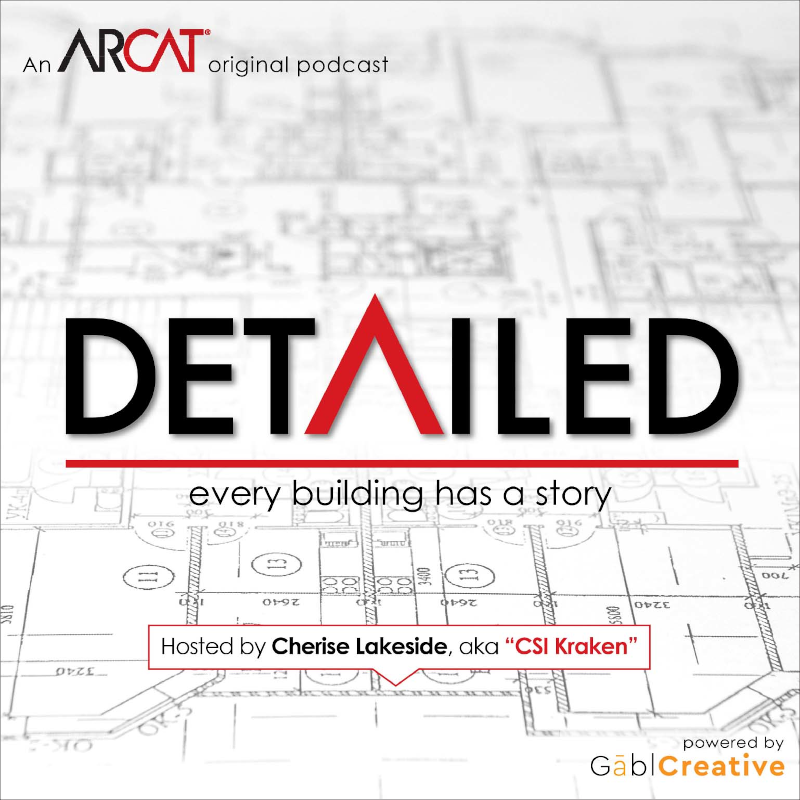|
Contributed by Randy Nishimura Change is a constant in architecture and construction. If anything, the pace of this change is accelerating. We all struggle to keep up with the latest developments in an effort to remain competitive. Our success is contingent upon how quickly we adapt in an environment buffeted by forces largely beyond our control. Survival of the fittest is a maxim always in play.
If there is another constant in our industry it is the importance of clear, concise, correct and complete construction documentation and communications. Architecture and construction are increasingly dependent upon the effective conveyance of design intent. They are likewise dependent upon the clear definition of project responsibilities and roles detailed by the forms of agreement most widely used in construction projects. It’s important and necessary for everyone — owners, architects, engineers, specifiers, general contractors, subcontractors, construction materials suppliers, and others — to understand project delivery options, standard forms of agreement, means for organizing drawings and specifications, etc. Change and the Four C’s of construction documentation are not incompatible. A key to managing the former and mastering the latter is knowledge, specifically fluency with the lingua franca of our industry. Knowledgeable employers highly value those who understand the language of construction, its underlying principles and terminology, and the critical relationships between all the participants in any design and construction undertaking. Employees who thoroughly understand this language not only survive but are more likely to thrive. They are the winners in today’s challenging and constantly changing environment. So, how can you demonstrate your construction knowledge and competence? How can you stand out in the crowd? One of the best ways is to achieve CSI's Construction Documents Technologist (CDT) status. The Construction Specifications Institute developed the CDT program decades ago to provide training in construction documentation for architects, contractors, contract administrators, specifiers, and manufacturers’ representatives. Since then, it has become the cornerstone for all of CSI’s certification programs, which presently include Certified Construction Specifier (CCS), Certified Construction Contract Administrator (CCCA), and Certified Construction Product Representative (CCPR). Passing the CDT examination means you have become fluent with construction project processes and communication. It means you’ve demonstrated professional commitment, credibility, and reliability to your employer, colleagues, and clients. Obtaining CDT status benefits you, your company, and your customers. Getting your CDT also means acquiring the privilege to add “CDT” after your name on your business card and resume. In some respects, I regard the value of the CDT as analogous to that of a liberal arts degree, in that both provide a foundation for more advanced learning. I became a CDT back in 1989, and subsequently achieved Certified Construction Specifier status a couple of years later. There’s no doubt in my mind that studying for and passing both examinations has served me very well professionally. What I learned provided me with a solid knowledge base I’ve relied upon throughout my career. I know I’m a much better architect than I might have been without the benefit of what I learned through those two certification programs. I truly believe this knowledge equipped me with the ability to better cope with the accelerating changes in our industry by ensuring I first thoroughly grasped the time-tested fundamentals of construction documentation and communications. I highly encourage any of you who are simply curious about CDT certification to seriously consider learning more about its value. Ask others besides me who have become CDTs. Or check out CSI’s YouTube channel for informational webinars about its certification programs. The webinars provide more information than I have shared here. Each webinar covers the requirements and resources needed for successful exam preparation and study. Many local CSI chapters also offer educational courses to help those interested prepare for the examinations. As the saying goes, knowledge is power. Knowledge provides a competitive edge. Give your knowledge about construction documents and communication a boost by becoming a Construction Documents Technologist. The true value of CDT certification is beyond calculation—it’s priceless. (Editors note: the next testing window for CDT & advanced certification will be Spring of 2017)
11 Comments
Brian Stephens
10/25/2016 04:08:41 pm
I sure wish more design professional firms in my neck of the woods would employ more CSI credentialed people to work on projects that I hire them for. The CCCA that I earned has been a significant benefit to my professional success, and it all began with the CDT certification.
Reply
Cherise Lakeside
10/25/2016 04:28:01 pm
Hi Brian. If this were a perfect world, no construction professional would finish school/training without this education. Since that is not the case, the best solution that I have found is to advocate for it. For example, as an Owner, start asking how many CSI Certified staff are employed by the design professional in the RFP. Just getting that question is going to make them stop, look and listen if they think it may impact whether they get a project. At both the MEP firm I last worked at and at my current Architectural Firm, I took a proposal to the head honchos to get our staff CDT Certified. Right this very minute, 40 of our staff are taking their exams after my coworker and myself taught them the CDT education program. The more we share the value and importance of CSI certification and put our money where our mouths are, the easier it is going to be for all of us to work together in our world. Thank you for your thoughts and comments.
Reply
Brian Stephens
10/27/2016 03:54:07 pm
Great Suggestion Cherise! I think my agency is bound by law to stick to certain criteria in the proposal phase of an RFP, but a question or two will most definitely be included in my question vault for the interview phase of the selection process. When a new rep comes in and we do the business card exchange, the first thing I look for is CDT. If it's there, I know the rep is familiar with the general conditions and with how prior approvals and substitution requests work. If it's not there, I turn the table and try to sell them on the value of CDT. Many reps have later thanked me for the advice, and told me they hadn't understood those things until after studying for the exam.
Reply
Cherise Lakeside
10/27/2016 01:34:31 pm
You go Sheldon! I do the same thing in my office. My first question to every rep is "Do you belong to CSI?" Many of them now do! :)
Reply
10/28/2016 09:21:39 am
What surprises me after having taught the CSI certification classes for several years now is how even people who have been in the industry for a while (and have decided to take the course and pursue certification) still aren't fully conversant with some of the fundamental principles of construction documentation, roles, and communication. CSI should double-down on promoting the value of a basic grounding in these principles to all sectors of the AEC industry. If we all speak the same language, we'll all understand one another better and work more effectively toward solutions to the problems that arise on every project.
Reply
Wasi
1/2/2019 12:57:06 am
I am very curious to get the CDT accreditation . But the issue is i dont know where to start ? I have read through almost all the information about CDT . Unfortunately i am yet to find out resources to study and practice exams . CSI website is a good resource but it has lot of information for a newbie like me .
Reply
1/2/2019 09:31:07 am
Wasi,
Reply
8/14/2022 11:48:12 pm
First time here at your blog and wanted to say i enjoyed reading this.
Reply
Leave a Reply. |
AboutLet's Fix Construction is an avenue to offer creative solutions, separate myths from facts and erase misconceptions about the architecture, engineering and construction (AEC) industry. Check out Cherise's latest podcast
Get blog post notifications hereArchives
March 2022
Categories
All
|


 RSS Feed
RSS Feed
